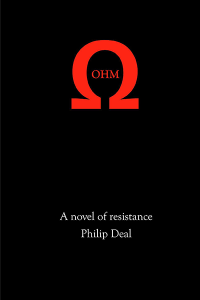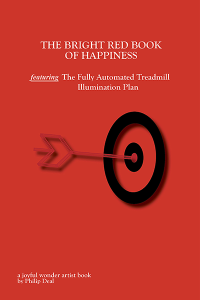.
This isn’t the first book I wrote, but it’s the first one I let anyone read.
If this were the only book I ever wrote, I’d still feel my writing career was worthwhile. I got lucky that way. Want to read a free sample? Visit the page for this book, then click on the cover.
OHM follows the extraordinary lives of ambitious inventors, greedy entrepreneurs, and three ordinary people as they search for meaning in a world of runaway technology. Writing this book was everything I wanted writing to be, and a lot I never asked for. This book isn’t available anymore. Write me and I’ll tell you why.
What writer wouldn’t want to write a book with a treadmill as a character? This book will make you laugh, and if you bring an open mind you will definitely be inspired. Warning: If you’re looking for a book that leaves wiggle room for your opinions, this isn’t the book for you. Want to read a free sample? Visit the page for this book, then click on the cover.
And then there’s branding. No matter how hard I try, I just can’t turn myself into a brand. Should I be worried?